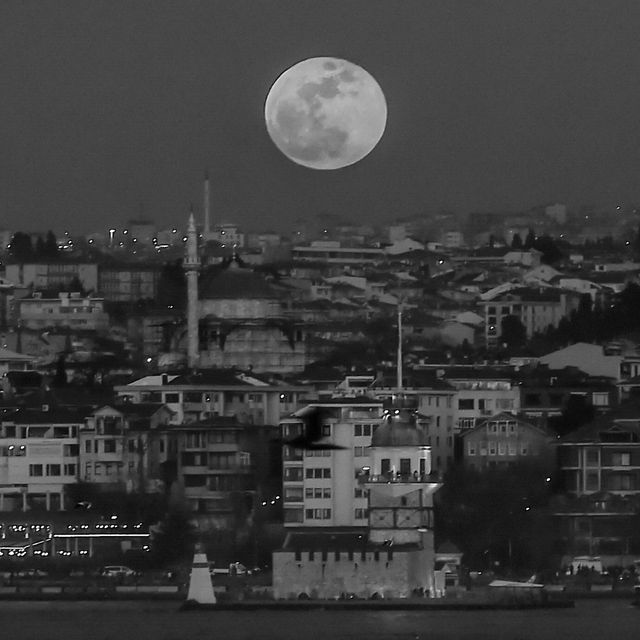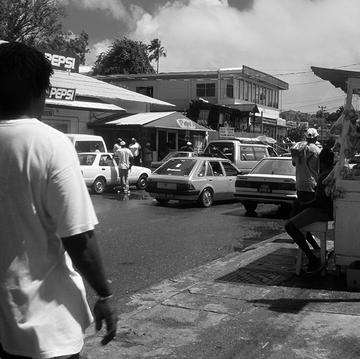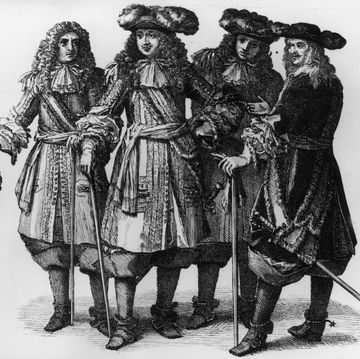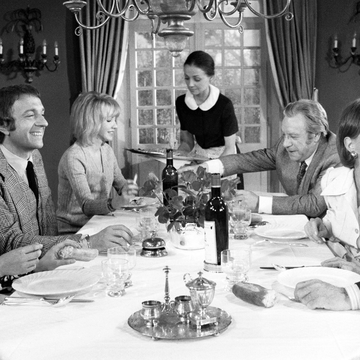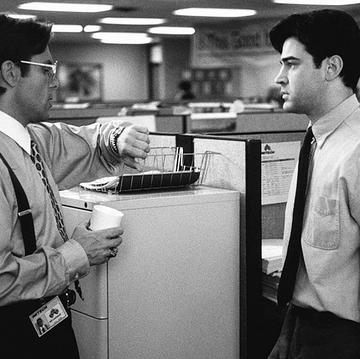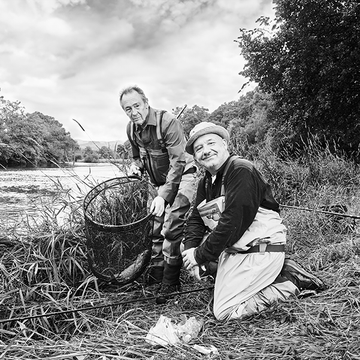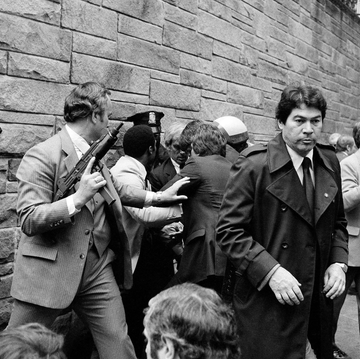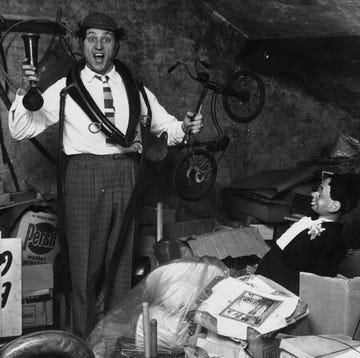I ate the strangest meal in Istanbul. It was a cold Monday night on the last day of February 2011, and I was on assignment for The Sunday Times Magazine. I had flown from London to have dinner with a surgeon named Yusuf Sonmez. He suggested the venue: an upscale kebab joint called Günaydın, opposite the Bostanci seaport, on the outskirts of the city. The restaurant was airy and almost empty. The Sea of Marmara shimmered beyond floor-to-ceiling windows. It was easy to spot Sonmez. An athletic-looking man in early middle age, he had a shaved head and taut, serpentine features. I recognised him from the Interpol red notice.
I had arrived at dinner by taxi, directly from the airport. It was my first time in Istanbul, and I was bowled over by its grandeur. The airport was on the European side of the city; the restaurant on the Asian. The drive took me high across the Bosphorus strait, which was immense, and as busy as London’s North Circular at rush hour. Vast tankers ploughed north and south beneath the bridge. Ferries crossed east to west. The water flashed from turquoise to royal blue as the sun disappeared behind a cloud. I found myself wishing — not for the first time in my often solitary professional life — that I had someone with me to share this new experience.
Instead, my companion for the evening was a man known as “Doctor Vulture”, who was wanted by the authorities in several countries for his central role in an extravagantly cruel organ-trafficking ring. Still, my urge to connect was strong enough that, when Sonmez and I shook hands, I said something banal like,“Quite a drive!” or, “What a city!”
Our meeting sticks in my mind for another reason. Sonmez had long, supple fingers: a de-tail that felt consequential, given what I had come to talk about. Sonmez was the pivotal figure in a scandal that became known as the “Medicus Case”. In the summer of 2008, a poor, 23-year-old Turk named Yilman Altun had collapsed in Pristina Airport, in Kosovo, shortly before boarding a flight to Istanbul. A doctor examined him at the airport. There was a fresh scar on Altun’s abdomen. He told the doctors and policemen who questioned him that his kidney had been “stolen”at the Medicus Clinic in Pristina. Altun said he had been promised $20,000 for his organ, but he had yet to receive a penny.
Within a few hours, the police raided the clinic, where they found the 74-year-old recipient of Altun’s kidney — an Israeli called Bezalel Shafran— recovering from his operation. Shafran had paid nearly $100,000 for the transplant. A local and international criminal investigation began.
The story that emerged between 2008 and the time I started my reporting was of an organ-trafficking scheme in which young men from the poorest parts of Eastern Europe and Turkey were lured to Kosovo, a brand-new state formed following the break-up of Yugoslavia, with the promise of significant sums of money for their organs. The recipients were normally rich, old men, most of whom were from Israel. Sonmez led the group of surgeons and he performed many of the operations — all of which were illegal under the UN law that governs Kosovo. (The government of Kosovo was also linked to the scandal, but I won’t detain you with the details here.)
Nancy Scheper-Hughes, an expert on the grey and black market for international organ transfers, told me that Sonmez was personally responsible for some of the most dangerous surgical practices she had ever seen. “He’s a criminal, pure and simple,” she said.
Sonmez guided me through the menu at the restaurant. He said everything was excellent, but particularly the meat. He spoke English extremely well. I remember that the restaurant doubled as a butcher’s. Before we chose our food, we wandered through the shop. The flesh of different animals was displayed under glass and brightly lit, which evoked some unpleasant surgical-medical associations. When we returned to our table, I didn’t inspect the menu for long. I believe I chose the lamb.
Years later, on 16 June 2018, this moment came back to me outside the Ulysses pub on Pearl Street, in downtown Manhattan. I was giving a reading at a Bloomsday ceremony in New York, a yearly festival that celebrates James Joyce’s novel about one day — 16 June 1904 — in the life of its hero.
This was the passage I was rehearsing when the memory of Günaydın’s kebab display re-emerged: “Mr Leopold Bloom ate with relish the inner organs of beasts and fowls. He liked thick giblet soup, nutty gizzards, a stuffed roast heart, liverslices fried with crustcrumbs, fried hencods’ roes. Most of all he liked grilled mutton kidneys which gave to his palate a fine tang of faintly scented urine.”
Sonmez and I attended to business while our meals were prepared. He told me many lies. I wrote some of them down. The others, I trusted my tape recorder to catch. In between some testy exchanges, we spent a few minutes discussing his love of skiing, and the little chalet he had recently bought in the mountain city of Bolu. It was an odd interlude. During that part of the conversation, I recall a happy détente spread across the table. It was like half-time in a game of football.
Soon enough, we were antagonists again. I pressed him on how many operations he had performed at the Medicus Clinic. He told me he had only ever assisted in one operation, that he didn’t know the financial arrangements for his patients, and that he was simply a hired hand at certain times in the clinic. In other words, he was a minor player in a blameless arrangement.
This was all palpably untrue. A few weeks later, an investigator showed me a log from the clinic showing that Sonmez had performed 29 transplants there. The following year, Turkish prosecutors asked for a 171-year prison sentence for Sonmez. He never served his time. Shortly after we met, he disappeared. He was not arrested in Turkey, or anywhere else, despite Interpol’s best efforts. As far as I know, he is still skiing, and eating kebabs. Maybe he’s still a working surgeon.
A final memory from the meal: as we sat down, Sonmez ordered a local red wine. By the end of dinner, I noticed that his teeth were stained slightly from the wine. Even at the time, this detail seemed a little too perfect. If you were writing the scene for a movie, you’d refrain from colouring Doctor Vulture’s teeth blood-red. But it happened, in front of my eyes.
Soon afterwards, I realised that I was not the only party to view the exchange in cinematic terms. I knew an American journalist who was also covering the organ-trafficking story. We began to talk about our interviewees in that half-collegiate, half-competitive way reporters do. He told me about meeting Sonmez in a kebab house on the outskirts of Istanbul. I laughed when he told me the restaurant’s name. It was the same place, the same kebabs, the same wine, the same schtick. In other words, Sonmez was performing.
I’ve always wondered what it was he intended to communicate by this piece of theatre. Years later, the only sensible conclusion I can draw is that Sonmez was making a double bluff. Because who would reasonably expect the monster to appear as himself?
Ed Caesar is the author of, most recently, the non-fiction book The Moth and The Mountain. This piece appeared in the May-June 2020 issue of Esquire.
